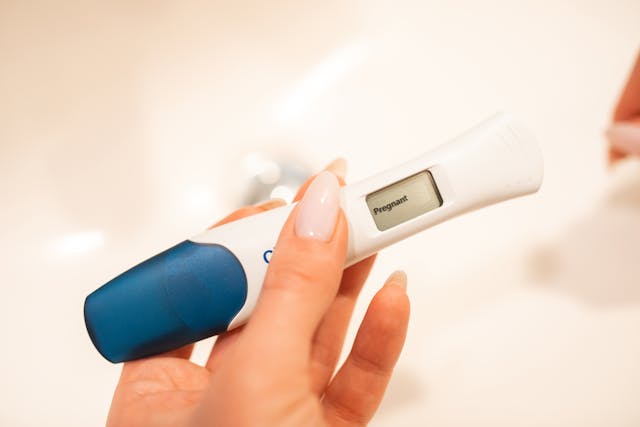I know what you’re probably thinking. Dangers? What is she talking about?
It’s become normal for most women to receive one or more ultrasound scans during their pregnancy, not to mention the number of times a Doppler is used to find the baby’s heartbeat.
Most people have no idea that there might be dangers in the use of ultrasound technology. Doctors tout the benefits of ultrasound at detecting problems early, and claim that ultrasound is completely safe, but the benefits might not be as great as they are made out to be.
Even more, not enough studies have been done to say that ultrasounds are absolutely safe. In fact, the few studies that have been done seem to suggest the opposite, that there are dangers in performing ultrasounds, and the benefits might not be as great as doctors would like to think they are.
But that’s exactly the problem. There are not enough studies. Ultrasound is a big, fat, “who knows” that we are pointing at babies from the very moment they begin forming all of their vital organs.
In searching for information about the risks of ultrasound, Mayo Clinic had this to say:
“Routine fetal ultrasounds are considered safe for both mother and baby. Researchers haven’t noted any adverse effects of fetal ultrasounds in children followed for several years after birth.
Still, caution remains important. The use of fetal ultrasound solely to create keepsakes isn’t recommended.
Fetal ultrasound also has limitations. Fetal ultrasound might not detect all birth defects — or might incorrectly suggest a birth defect is present when it’s not. “
That’s it. That’s all the information they had on the risks of ultrasound.
Firstly, I would say this is untrue. Adverse effects have been found (and I’ll show you down below). Secondly, they admit in their second and third sentences that ultrasound may not be safe and that it may not be the best tool for determining problems during pregnancy.
Do you really want you and your baby to be the guinea pigs?
What Studies Have Been Done?
3 randomized controlled studies on Doppler Sound (a powerful form of ultrasound) have found perinatal (just before birth or after birth) death to be up to four times higher with the use of Doppler.
One large study found 20 miscarriages in the group of women who were given ultrasound scans, and none in the group who did not receive ultrasound. The second study found twice as many pre-term births in the ultrasound group. Yet another study found a possible link between ultrasound and growth retardation of the infant in the womb.
Doppler studies:
- Lancet 1992;340:1229-303
- Lancet 1990;336:387-91
- American Journal of Obstetric Gynecology 1990;162:1603-10
Studies of the effects of ultrasound on animals have found adverse effects as well, though these adverse effects have not been studied in humans.
Monkeys who were repeatedly exposed to ultrasound exhibited clear behavioral problems, including social withdrawal. Another study on monkeys found low body weight and poor muscle tone a possible side effect of ultrasound.
Studies done on guinea pigs found that ultrasound could raise the temperature of brain tissue near bone as much as 34.7 degrees Fahrenheit. If the same occurred in human babies during early pregnancy, when the brain is most vulnerable, it could possibly damage vital cells and cause long-term neurological damage.
What these studies have found is that ultrasound may not be as safe as once thought.
But, Doesn’t Ultrasound Save Babies?
Several studies have confirmed that:
- ultrasound does not improve outcomes for babies overall
- there is no reason for the use of ultrasound in 80% of pregnancies
- Of over 5,000+ chromosomal abnormalities, ultrasound can only detect a handful of them.
For women at risk for pre-term birth, ultrasound has been found to have no benefit over manual examination of the cervix. However, in one study, it was found that 52% of women who had ultrasound to check the cervix went into preterm labor, as opposed to only 25% of women in the group who only had manual examination.
What we do know is that there are many other indications that doctors and midwives can use to detect problems before performing unnecessary ultrasound scans.
Ultrasound is also notorious for “finding” problems that don’t actually exist, and may cause much more worry for parents and doctors than it solves problems, especially in the 80% of pregnancies where ultrasound is not medically indicated.
Finally, in many cases, ultrasound could be causing the very problems it promises to diagnose. The fact is, we just don’t have enough information to know.
Resources:
Ultrasound – Just Looking CAN Hurt!
Ultrasound Scans May Harm Unborn Babies
Questions about Prenatal Ultrasound and the Alarming Increase in Autism




